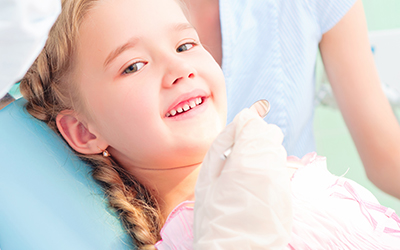Posted on Jul 14, 2025
File ID 26861340 | © Adam121 | Dreamstime.com

A trip to the dentist can be an overwhelming experience for children, especially if it’s their first time. Fear of the unknown, strange equipment, and unfamiliar sounds can all contribute to anxiety. However, with the right approach, parents and dental professionals can work together to make visits to the children’s dentist a positive and even enjoyable experience.
One of the most impactful ways to ease anxiety is by choosing a dental office that specializes in pediatric dentistry. These practices are designed to cater specifically to children’s needs, using kid-friendly language, tools, and office décor. A skilled team trained in dentistry for children knows how to interact with young patients in a way that builds trust and comfort from the moment they walk through the door.
At Firestone Pediatric Dentistry & Orthodontics, the staff creates a warm, welcoming environment tailored to children of all ages. Their compassionate approach helps transform potentially stressful visits into positive milestones in your child’s oral health journey.
Introducing your child to the dentist at a young age can prevent fear from developing in the first place. The American Academy of Pediatric Dentistry recommends that children have their first dental visit by age one or within six months of their first tooth appearing. Early visits help normalize the experience and allow your child to form a relationship with their children’s dentist.
When dental care begins early, it becomes a routine part of life rather than something to dread. These visits also offer opportunities for the dentist to provide preventive care, like fluoride treatments and sealants for children, reducing the risk of cavities and associated pain.
Before a dental appointment, prepare your child using positive, age-appropriate language. Avoid using words like “pain,” “hurt,” or “shot.” Instead, talk about how the dentist helps keep their teeth healthy and strong.
Role-playing at home is another effective tool. Pretend to be the pediatric dentistry professional and let your child be the patient—or vice versa. Use a toothbrush and a mirror to simulate an exam, which can help them feel more in control and less anxious.
Rewarding your child after the visit—whether through praise, a small toy, or a fun activity—can also reinforce the idea that going to the dentist is a good thing.
For children with extreme anxiety or special healthcare needs, sedation dentistry for children may be a helpful option. Depending on the level of fear, mild sedation using nitrous oxide (laughing gas) or more advanced options may be discussed by your children’s dentist. These methods are safe and effective when administered by trained professionals.
If sedation is necessary, the team at Firestone Pediatric Dentistry & Orthodontics will explain the process clearly and ensure your child is monitored closely throughout the visit.
One of the best ways to reduce fear is by preventing dental problems before they start. A consistent routine of brushing and flossing at home can minimize the need for complex dental treatments that might cause anxiety. Teach your child the importance of oral hygiene for kids, and make brushing fun by using music, timers, or themed toothbrushes.
Also, regular checkups with your children’s dentist allow for early detection and treatment of minor issues before they escalate into something more serious.
Today’s digital landscape offers a variety of kid-friendly books, videos, and apps that can help demystify dental visits. Tools like storybooks or cartoons about visits to the pediatric dentistry office allow children to visualize what to expect in a non-threatening way. These resources can open up conversations and encourage kids to ask questions or express concerns in advance.
Reducing dental fear in children is a collaborative effort between parents, children, and dental professionals. By choosing a team experienced in dentistry for children, making early and positive introductions, and fostering a fun and proactive approach to oral care, you can help your child grow up with confidence and a bright, healthy smile.